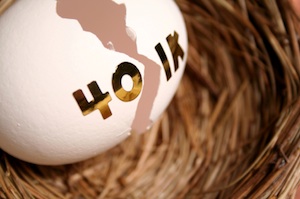Borrowing from your 401(k) might seem like just the thing to do in a pinch.
After all, even though you are borrowing, and you have to pay interest, you are making payments to yourself — and the interest you pay goes into your account.
Before you get too caught up in the idea of borrowing from your retirement account, though, it pays to take a step back and think things through.
There are some definite downsides to borrowing from your 401(k) retirement account, and you want to make sure that you are truly prepared for the possible consequences of borrowing from your retirement account — even if you think that it’s an emergency.
The Costs of Borrowing from Your 401(k)
Even though you don’t have to pay a penalty on a loan from your 401(k), or pay taxes, there are costs associated with such a loan.
Yes, the interest goes back into your account as you repay it. However, most plans have some sort of a loan administration fee, or an origination fee, if you decide to borrow from your 401(k). This will reduce the amount of money you end up with for yourself from the loan, or it will reduce how much money you have in your account.
The other costs to borrowing from your 401(k) account might come later.
Even if you plan to repay your loan, you should realize that other things can happen to prevent you from making your payments. If you miss your payment, you default on the loan. All of a sudden, your loan becomes a withdrawal, and you will owe taxes on it, plus, if you are under the age of 59.5, you will have to pay a 10% penalty for early withdrawal.
Realize, too, that if you lose your job, the balance of your loan becomes due, usually within 60 days. If you don’t have the loan paid off in that time, you will be assessed taxes and a penalty, just as if you had made a withdrawal, rather than taking out a loan.
Opportunity Cost

The other cost to withdrawing money from your retirement account comes in the form of opportunity cost.
With your capital no longer in your account, you aren’t earning money on that amount.
It’s true that, when you start repaying the loan, it will go back in with interest. However, you will have lost all that time in which your capital could have been working for you — and likely earning more than the interest you are paying on the loan.
This is worth thinking about.
When you are investing, time really is money. The more time your capital has to work for you, the more your nest egg grows.
Your 401k loan may cost you more than you think.
Bottom Line
In some cases, your emergency fund may be tapped out, and you may need a 401(k) loan.
However, before you get that loan, consider your options.
Also, review the possible risks. If something happens and you can’t make payments, or if you lose your job and the loan comes due at once, what would you do?
In those cases, a 401(k) loan could cost you a great deal more than you expected.
It’s quite amazing how many people take loans from their 401(k). I wish people would just learn that it’s for RETIREMENT. It should literally be the last resort and I’d love for people to only touch it if they were facing bankruptcy or foreclosure.
I agree that it should really be one of the absolute last things you do. It’s so hard to catch up on that earning power again.
But for a lot of people that cache of cash is hard to resist.
I agree this is the last thing you want to do. Cut your spending and leave retirement money for retirement.
Thanks for the reminder. Sometimes you need to do what you need to do, but hopefully I won’t ever have to borrow from my 401k.
It’s true, some people have to go the 401(k) loan route. But if you can avoid it then that’s probably better.
Another note is that there are those who see their 401k as a savings they could tap if ever needed. This is a mistake.